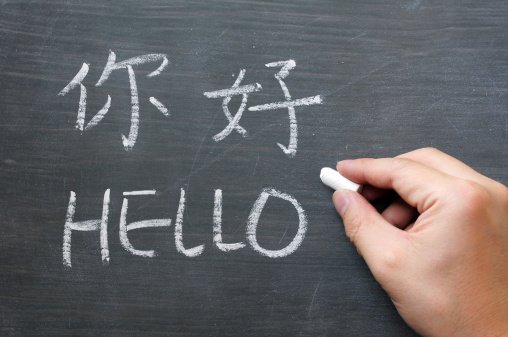I’m pretty sure that the typical Chinese student here learned Chinese as their first language and English as their second. But I’m an exception: I learned in the reverse order, meaning that I learned English first, and Chinese second. The reason for this reversal is because I had lived most of my childhood in America, before returning to China. While I was in America, I learned to use English very naturally and fluently, but I could only speak the simplest of Chinese. Let me tell you a short story to illustrate the point.
I remember that in elementary school, every year we would welcome new students from all over the world. I quickly realized that the international Asian community in elementary school in San Diego, where I lived, almost always consisted of Japanese and Korean students, and that it would be a very rare occasion to find a Chinese student there. I remember that there actually was a single international Chinese student in my fourth-grade class, and he could not speak English at all.
I remember the teacher at that time wanted me to help him, as she probably assumed that I could understand what he said, but it turned out that I was no good at interpreting standard Mandarin. I simply could not understand what he was saying. In the end, he had to rely on a pocket translator as the only means of communicating in class. Little did I know, in less than a year, I would almost be in the same situation as he was in.
Back to China
When I first came back to China, I did not understand the perilous situation I was in. This was mostly due to the fact that as a child, I tended to have a carefree attitude towards nearly everything, and it was still summer vacation at that time. But, two weeks later, as I ominously entered my future Chinese elementary school for the first time, I had a mild sense of discomfort and an urge to hide in a closet. As I was asked to make a self-introduction in Chinese in front of my new class, I finally realized that I had made a transition of worlds. I was in a Chinese speaking environment! I had to speak Chinese in order to survive in this world! Later that day, when I was preparing for Chinese class at home, I had a big meltdown as I realized there was no going back. Thus began my journey of learning Chinese.
When I first started class, I could barely manage to keep up with what the teachers were saying. As I was naturally shy, it was difficult for me to make new friends and talk with them. My Chinese teacher was a very strict middle-aged woman who seemed to look down on weakness, and it seemed that whenever she looked at me, she saw nothing but weakness. Perhaps the thing that shook me up the most was the way we learned Chinese, as opposed to the way I learned English in America. Here, there was much bigger emphasis on rote memorization. We had to memorize new Chinese characters, the different meanings of Chinese characters in ancient Chinese texts, famous catchphrases and quotes, ancient and modern Chinese poems, and much more than I care to remember. The method was so much different than what I was used to in America.
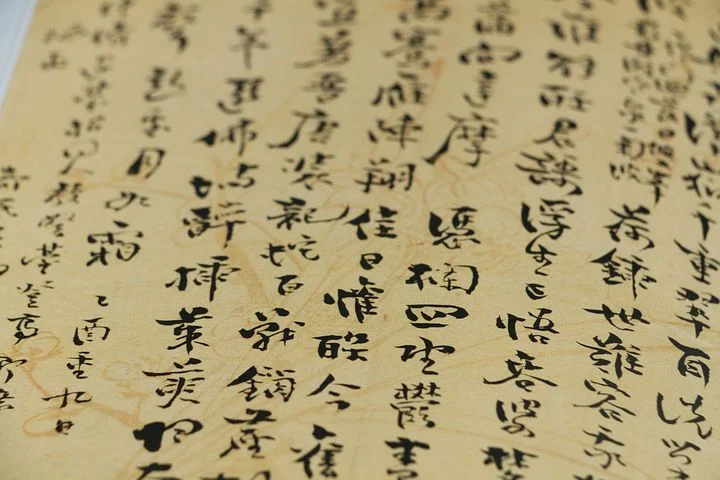 Image credit: https://pixabay.com/photos/china-chinese-character-books-2542574/
Image credit: https://pixabay.com/photos/china-chinese-character-books-2542574/
Back then, we did not memorize that many things and spent most of our time freely reading and thinking with no feelings of stress, sometimes under the guidance of our teacher. We also had to do a vast amount of exercises and problems based on Chinese culture, which I did horribly on. After struggling for half a semester, we had our first official test, and my homeroom teacher did not even allow me to take the test with the rest of my classmates! I took the test on another day, and I got a score of 30 out of 100 on my Chinese. My memories of taking that test are really vague now, but I remember that I did not get any points for the writing component of the test because I had misunderstood the directions.
Doing this badly on a subject will often give you a sense of hopelessness and helplessness, as I often experienced back then, but as time went on, I eventually got better. Most of it was because my Chinese teacher forced me to stay in the classroom when others were taking P.E. classes or attending fun activities or going home and giving me a lot of extra, basic assignments to do. She practically force-fed me the basics of Chinese, and although I resented it at that time, in retrospect I have come to appreciate the fact that my Chinese teacher paid so much attention to me.
It was also because I had finally made a friend at school, and by a miracle, he had also been to America, but unlike me, his Chinese was as proficient as his English. As such, we had lots of things to talk about and he encouraged me to have a change of heart about Chinese. I suppose that he really did play a substantial part in motivating me to learn Chinese. At the end of the semester, I got a score of 56 for Chinese on my final exam, which was almost double my previous score. I continued to make slow progress in elementary school, and finally graduated with a score of 82.5 on Chinese in my last exam. Even now, this is still the highest score that I have ever achieved on an official school exam. After that, I continued my journey of language learning in middle school.
 Image credit: https://dribbble.com/shots/8957859-Language-Learning-is-a-Journey#
Image credit: https://dribbble.com/shots/8957859-Language-Learning-is-a-Journey#
Truth be told, I was not really a good student in middle school. At that time, I still had a carefree attitude towards nearly everything, including learning. While others felt pressure about the high school entrance exam, I simply did not care, because I knew that there would be a spot for me in a good high school, thanks to the intervention of my family. And it turns out that Chinese in middle school is much harder than it is in elementary school, because the focus is now more on the understanding of the Chinese texts, and in order to understand them fully, you need to have a certain cultural mindset that, sadly, I did not wholly possess.
Whenever we were reading Chinese texts, I could often understand what a text meant superficially, but I often had trouble grasping the deeper meanings and implicit emphasis that these texts were supposed to have. Truth be told, I have never actually liked deciphering texts that have supposedly hidden meanings or implications, as I think that the purpose of writing text is to express our ideas clearly, so I do not think that it is worth the trouble for the writer to create a jigsaw puzzle and try to make the reader piece together the meanings of his work. But unfortunately, many of the texts on our tests happened to be of that type. As such, I had no choice but to try my best to understand what the author was trying to say, even though I very often got confused. My middle school Chinese grade was always just about passing, more or less. This is probably the period that I got stuck in Chinese.
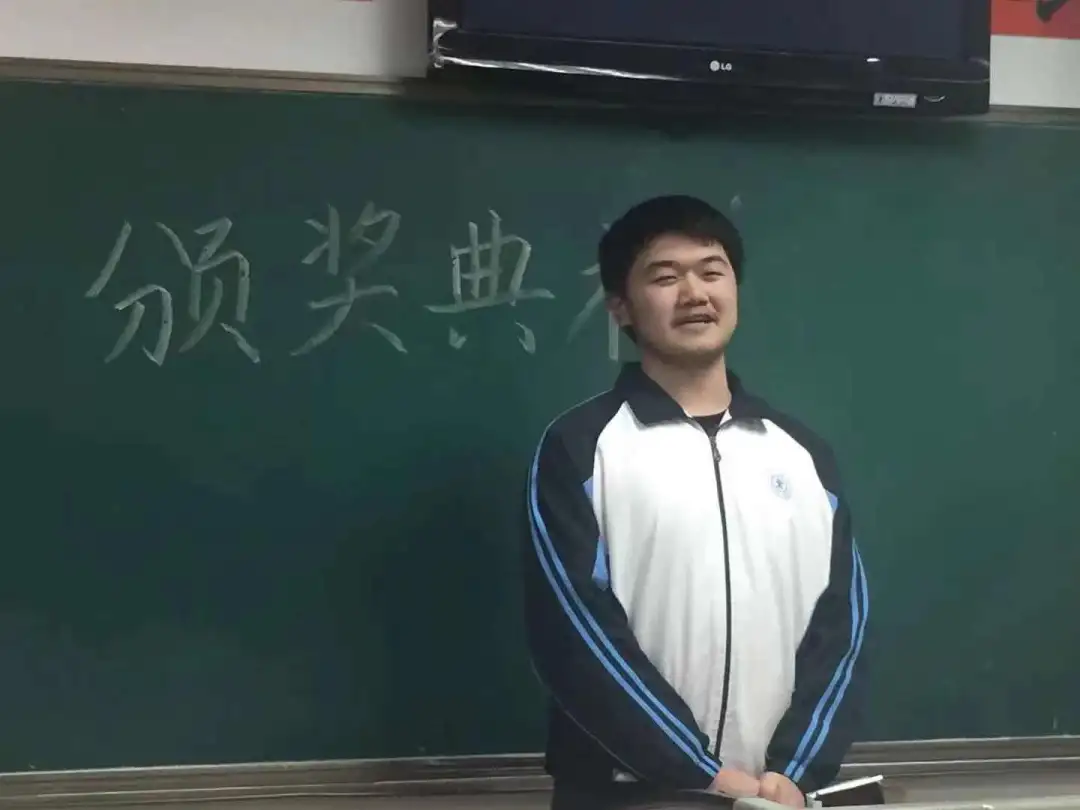 Shuhan in high school
Shuhan in high school
But in high school, things really started to get different. As the pressure of the gaokao, or the college entrance examination, finally started to kick in, I found myself thinking about getting serious for once in my life. I suddenly realized that this really was perhaps one of the biggest opportunities of my life, and that if I did not get moving now, it really would be too late. I started to take my grades seriously, and I had made considerable progress in my math, physics, and chemistry classes. Even though I put an unprecedented amount of time into learning Chinese, which involved doing extra exercises and getting private tutoring, my Chinese grade was at its best average, and never went beyond that.
I understood that there would always be an eight-year learning gap between my peers and me when it came to Chinese, but I never wavered in my faith to learn, even though sometimes I felt that my pride was wounded. Despite my efforts, I only got 105 out of 150 as my score on gaokao Chinese, which is probably about ten points lower than my school’s average score on Chinese. But if there is something that I have learned, it is that sometimes in life, you do not get the results that you want even after putting in your efforts, but you should be satisfied because you have done everything you could have done, and that there are no regrets.
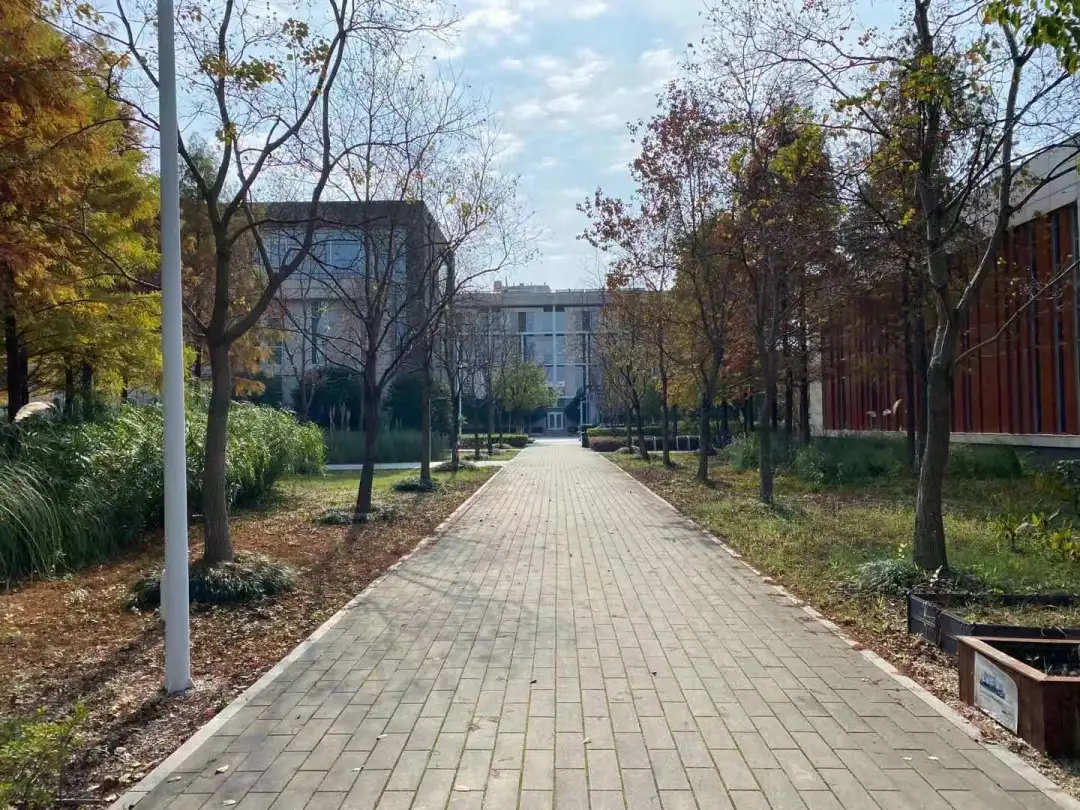 Picture of DKU taken by Shuhan
Picture of DKU taken by Shuhan
Now that I am at DKU, I suppose that my language learning journey has taken me from Chinese to English. Even though English is the first language that I learned, it has been eight years since I have used it as a means of communicating with others, so it is bound to be a little rusty. Truth be told, in the eight years that I have been back in China, I have never seriously paid attention in an English class at school. It is not because I am arrogant that I do not pay attention, it is simply the fact I do not understand the methods used to teach English here. But it has not stopped me from getting top English grades. But now that I am at DKU, things are different once more. I need to rewire my brain to think in English instead of Chinese, as I rewired my brain to think in Chinese instead of English eight years ago.
In conclusion, I consider my language learning journey in Chinese to be a failure up to this point, but I hope that I will do better in the future. I am coming back to English, but that does not mean that there is nothing for me to do. On the contrary, I find that there are a lot of things that I need still need to work on if I want to be truly proficient in English. I hope that I will be more successful this time.
Editor | Eric Eberly
Layout | Song Lexue 宋乐雪
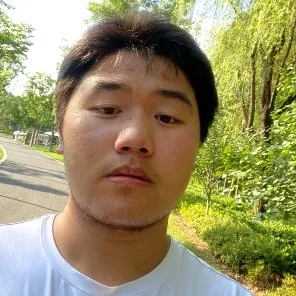
Li Shuhan (李书翰) is a student from the DKU class of 2024, planning to major in applied mathematics and computational sciences. He wrote this essay in Eric Eberly’s EAP101A class in fall 2020.

